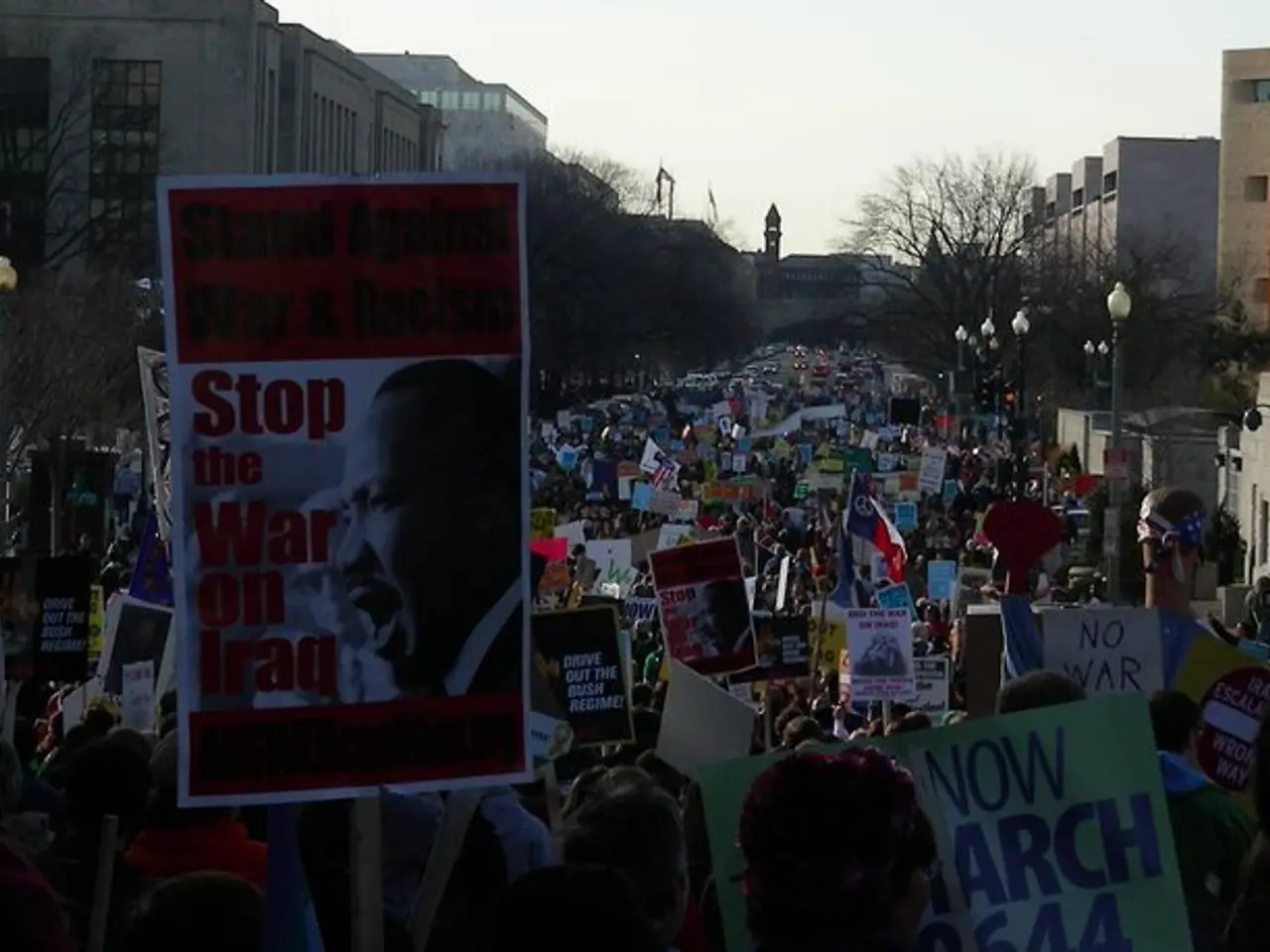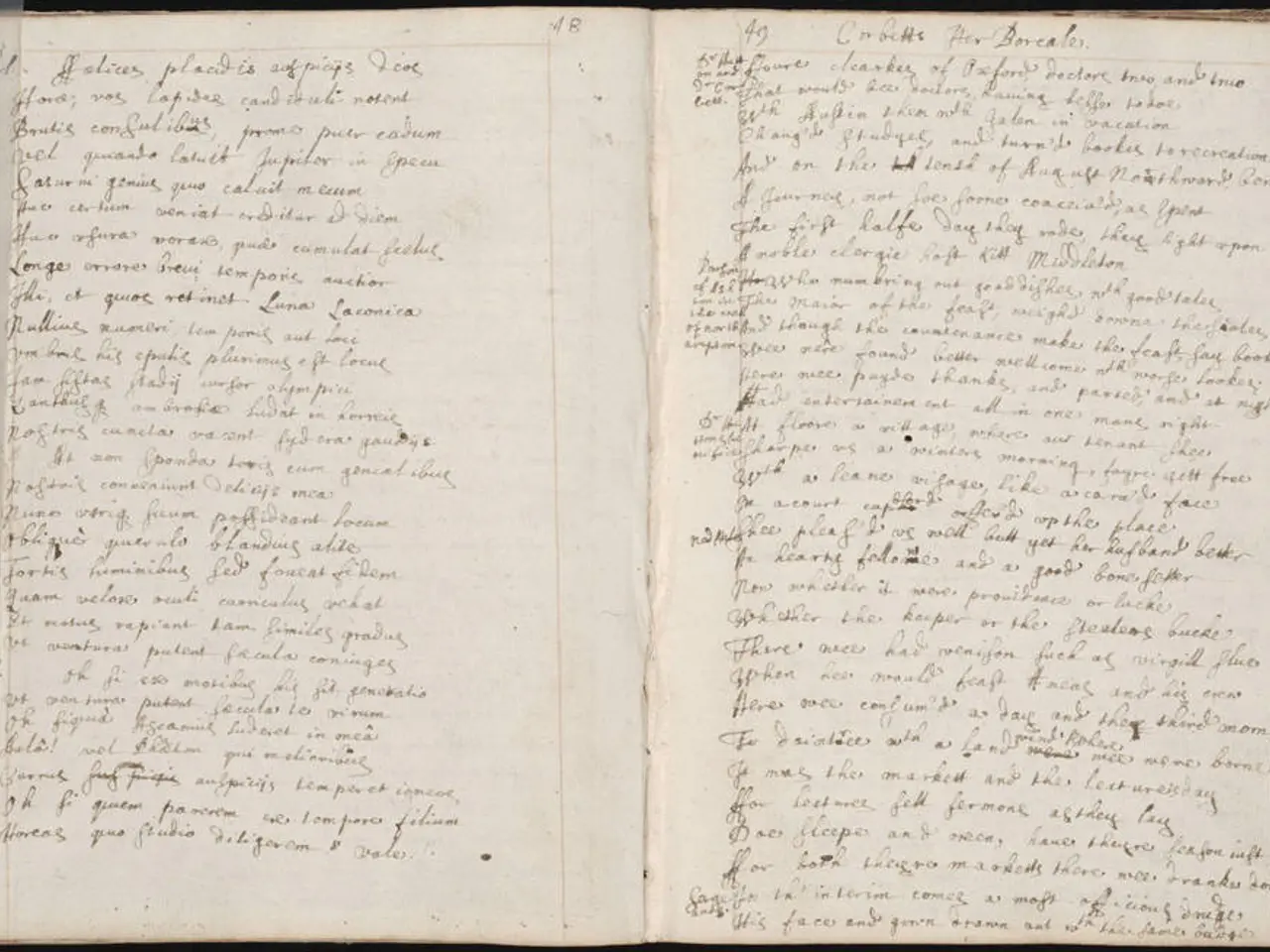Critics, including Caritas Philippines, voice disapproval towards Japan's planned expansion of fossil fuel projects across Asia.
Fiery Protest Against Japanese Fossil Fuel Expansion in Philippines
Climate activists and advocacy groups are up in arms over Japanese megabanks' aggressive push for fossil fuel projects across Asia, branding them as the "villains of the climate crisis." The intense opposition coincides with the annual meetings of major Japanese banks, Mizuho, SMBC, MUFG, and energy giant JERA.
In front of Makati's business district, around 150 protesters, including representatives from Asian Energy Network (AEN), Asian Peoples Movement on Debt and Development (APMDD), Philippine Movement for Climate Justice (PMCJ), Sanlakas, and other environmental groups, took a stand against Japan's coal and gas expansion projects in Asia.
Jing Rey Henderson, head of the national Ecology Program for Caritas Philippines, a Catholic Bishops' Conference of the Philippines (CBCP) social action arm, underscored Japanese megabanks' financing of gas expansion. The conversation turned to the February 2023 oil spill caused by a Japanese-owned ship, MT Princess Empress, which resulted in 800,000 liters of industrial fuel reaching the Verde Island Passage, a global hotspot for marine shore fish biodiversity.
The leaked oil continues to wreak havoc on the local ecosystem, with over 10 million fishermen affected, both within the Verde Island Passage and neighboring islands. Henderson emphasized that the threat is not confined to the area but expands to cover surrounding regions. As large oil tankers pass through, they discharge polluted oil into the sea, affecting the fishermen and their livelihoods.
Caritas Philippines has vowed to comply with its commitment to divestment by the end of 2025, while pressuring both Japanese and domestic banks to reduce or remove investments in fossil gas. It has already divested over P167 million from corporations involved in financing fossil fuel and mining projects. The church has further strengthened its stance by refusing donations from unethical sources.
Caritas Philippines' actions are in line with Pope Francis' Laudato Si, representing leadership by example. Divestment sends a strong message to corporations, warning them that they can no longer operate as usual, with profits being privatized, and social costs being socialized. If corporations persist in investing in fossil fuels, they may find themselves in a downward spiral as more entities opt for sustainable investments.
Lidy Nacpil, coordinator of the Asian Peoples’ Movement on Debt and Development (APMDD), continuous to confront Japanese megabanks and fossil fuel giants such as JERA, which are seen as accelerants of climate breakdown in the region. This opposition is not new, and these groups will continue to challenge Japan's ongoing funding of dirty energy projects to keep the region from veering further away from climate safety and slipping into environmental collapse.
Despite persistent criticism, Japanese banks remain among the world's biggest financiers of fossil fuels, with Mizuho, SMBC, and MUFG heavily invested in these harmful projects. Organizations around the world urge them to halt funding for new fossil fuel projects and align their policies with 1.5°C climate targets, setting clear decarbonization goals for their power sector portfolios by 2035 in advanced economies and 2045 globally.
- Climate activists and groups in the Philippines are protesting against Japanese megabanks' financing of fossil fuel projects, labeling it as harmful for the climate crisis.
- The protest, led by organizations like Asian Energy Network, Asian Peoples Movement on Debt and Development, and the Philippine Movement for Climate Justice, took place in Makati's business district.
- Jing Rey Henderson, head of the Ecology Program for Caritas Philippines, criticized Japanese banks for financing gas expansion and pointed to the 2023 oil spill by a Japanese-owned ship as an example of the damage caused by their actions.
- Caritas Philippines has committed to divesting from fossil gas by the end of 2025 and has already divested over P167 million from corporations involved in fossil fuel and mining projects.
- The church's divestment and refusal of unethical donations align with Pope Francis' Laudato Si, signaling leadership by example and sending a strong message to corporations to reconsider their investments.
- Despite criticism and calls to align with 1.5°C climate targets, Japanese banks like Mizuho, SMBC, and MUFG continue to be among the world's biggest financiers of fossil fuels, fueling the climate crisis and accelerating environmental collapse in the region.







